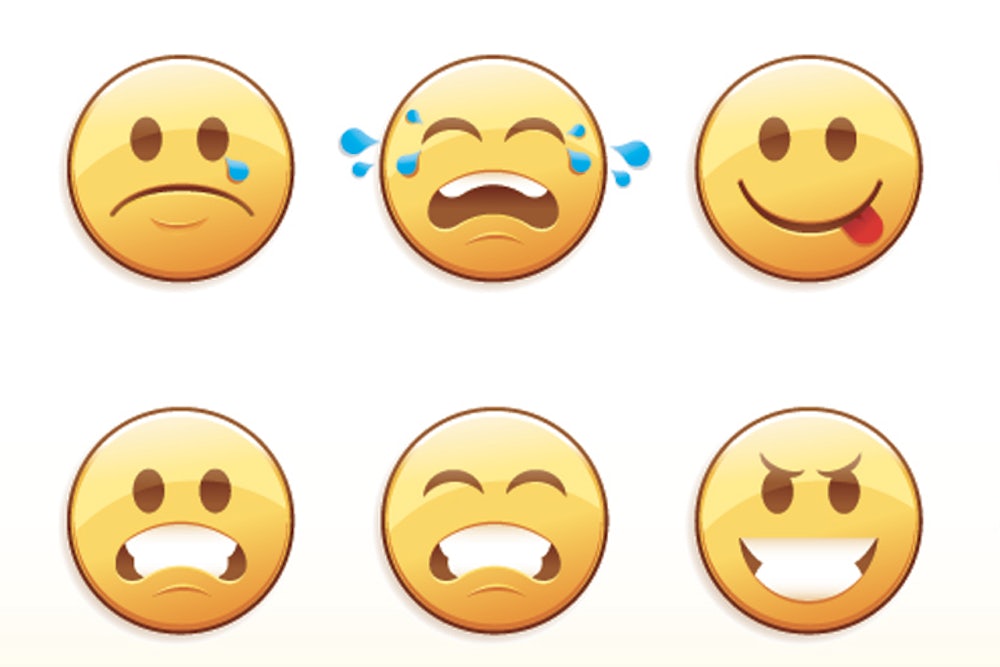The brain is a funny organ. It controls consciousness and thought but, it turns out, it can also be tricked into responding to a few punctuation marks as if they were a human face: The brain perceives emoticons the same way as it does real faces, according to a new paper in the journal Social Neuroscience.
Australian psychologist Dr. Owen Churches and his coauthors at Flinders University and the University of South Australia recruited 28 participants and monitored their neural activity as they were presented with different stimuli: smiling emoticons, random punctuation marks, or pictures of smiling male or female faces. If the punctuation marks were rotated—for instance, (-: instead of :-)—the brain didn’t respond the same way.
“Emoticons are a new form of language that we're producing,” Churches told ABC News. “And to decode that language, we've produced a new pattern of brain activity.”
Though they’ve only come into popular use in the last few years, emoticons have become the subject of a growing literature within computer science and psychology. Here’s what some other researchers have discovered about emoticons and their impact on meaning.
Using smiley faces can make you seem more likeable
For a 2007 paper in the journal International Journal of Business Communication, Kristin Byron of Syracuse University recruited 300 college students and had them take a personality survey, which was graded for emotional stability. The researchers then had the students read a series of banal emails from strangers—high school students asking for information on the university or professors requesting copies of academic papers. Some of the emails included smiley faces, while others consisted only of text. The students then had to try to assess the personality of the high schoolers or professors, based only on their emails. It turned out that the students who were higher in emotional stability tended to rate the senders as more “likeable” if they used emoticons, while less stable students weren’t swayed by the smiley faces.
elicits a stronger response than :-)
For a 2012 paper in the journal Cyberpsychology Behavior And Social Networking, Tina Ganster and her colleagues at Germany’s University of Duisburg-Essen compared the psychological impact of sending and receiving old-school smilies— the kind made up of punctuation marks, “:-)”, with pictographic smilies (). Ganster recruited 130 subjects online and had them read the transcript of an IM conversation that either included punctuation smilies, pictographic smilies or neither—and found that the pictographic smilies had the strongest impact on subjects’ mood.
Emoticons make IMing more fun
In a 2008 paper in the journal Information & Management, researchers led by Albert Huang at the University of the Pacific looked at how using emoticons in IM conversations affected emotions in 216 people. “IM messages are less formal and individuality is enhanced by a large variety of emoticons that allow users to express emotions easily,” wrote Huang. As they expected, they found a positive correlation between enjoyment and emoticon use:
An emoticon speeds up communication and eliminates some difficulty in expressing feeling using words; the process is easier, more interactive, and more fun. Also many emoticons are aesthetically pleasant and look amusing and many users apply emoticons sarcastically.
